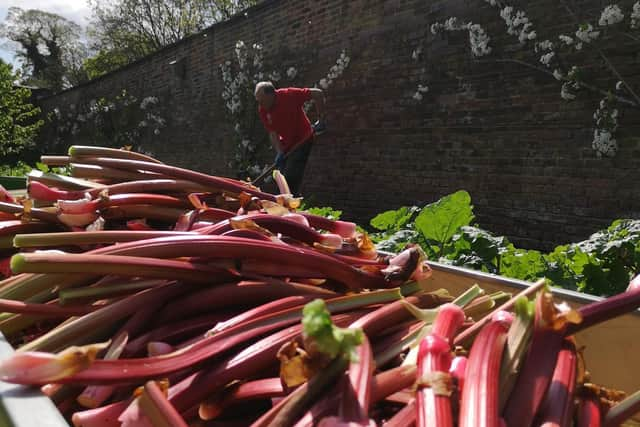Yorkshire Day: Nostell launches rhubarb and custard ice cream made using own Wakefield rhubarb crops
If there’s a day for celebrating all that is great about Yorkshire, then it seems only fitting that from the region’s rhubarb triangle comes a celebration of the pink Yorkshire-grown vegetable.
In honour of Yorkshire Day, Wakefield National Trust site Nostell is officially launching an exclusive rhubarb and custard ice cream.
Advertisement
Hide AdAdvertisement
Hide AdCreated in partnership with English ice cream manufacturer Snugburys, the ice cream has been made from the most recent crop of Nostell rhubarb.


Angela Barlow, food and beverage manager at the National Trust, says: “Yorkshire Day is the perfect excuse to indulge in a Yorkshire speciality, not that we ever need an excuse to eat ice cream.
“Rhubarb is one of the greatest culinary delights that Yorkshire has given to the world and we’re always excited to put it good use in the café.
“We’ve worked really closely with the team at Snugburys, following along with their production process as it’s gone from spade to scoop.”
Advertisement
Hide AdAdvertisement
Hide AdNostell’s ice cream has been developed exclusively for the National Trust by the technicians at Snugburys and it is quickly becoming a best-selling product.
There are 19 different types of rhubarb grown in the walled kitchen garden at Nostell, in a growing area spanning more than 50 metres in length.
Each year, the plant is harvested to supply the on-site cafe and to stock a courtyard stall for visitors to take home in exchange for donations.
The site is in Wakefield district, which each year celebrates its long-standing association with rhubarb growing, through a food, drink and rhubarb festival.
Advertisement
Hide AdAdvertisement
Hide AdThe area between Wakefield, Morley and Rothwell, famous for producing early forced rhubarb, is known as the Rhubarb Triangle.
The city’s long-standing link with rhubarb goes right back to the 19th century.
Historically, rhubarb had been used for medicinal purposes, but culinary use began in the UK from around the 1800s.
Local soil types - mixed with ashes, horse manure and textile waste - and rainfall levels provided excellent growing conditions in Wakefield.
Advertisement
Hide AdAdvertisement
Hide AdThe industry boomed from the 1880s, with the Rhubarb Triangle supplying markets in London and onto Europe.
By the time of the Second World War, the West Riding grew almost 50 per cent of the national total of rhubarb.
Special sheds were erected in the area for the purpose of cultivating it out of season, with the warm and dark conditions encouraging its growth.
Still today, these sheds are used to grow Yorkshire Forced Rhubarb, which gained European protection in 2010.
Advertisement
Hide AdAdvertisement
Hide AdIn the gardens of Nostell, rhubarb is just one of the many crops grown; there are also pear trees, several varieties of squash, giant artichokes, and banana palm, alongside others.
Garden and outdoor manager at Nostell, Paul Dibb says: “Being on the edge of the famous Wakefield, rhubarb triangle, we are proud to have so many varieties in our collection at Nostell.
“We have a sheltered spot against the garden wall which provides the perfect conditions for the rhubarb to thrive and, this year we’ve had a brilliant show once again.
“We harvested 90kg of rhubarb for Snugburys, picked by our team and some volunteers, including staff from East Riddlesden Hall who got involved as part of a team building day.”
Yorkshire Day is celebrated in the region on August 1.